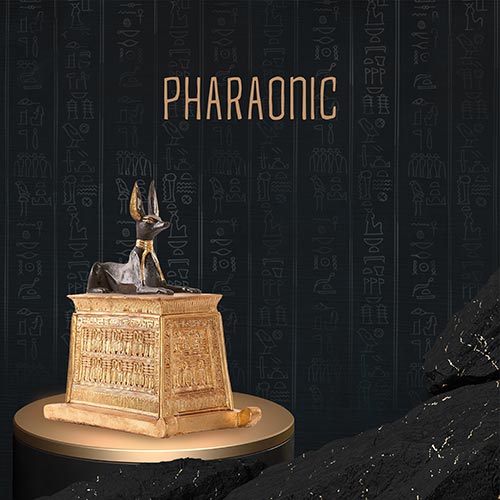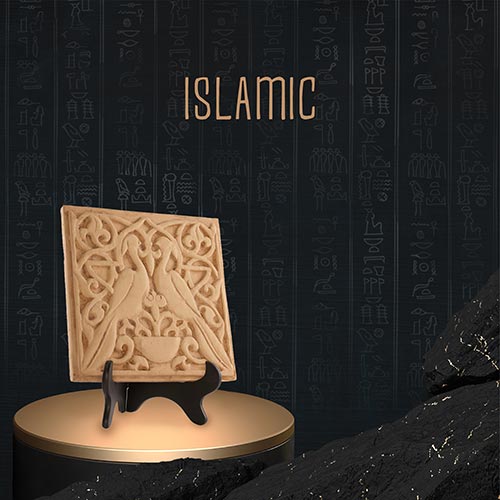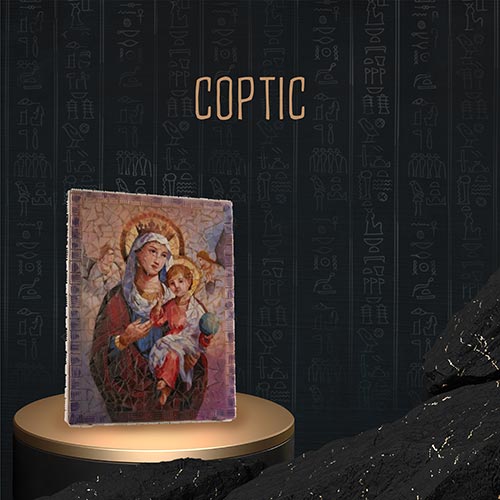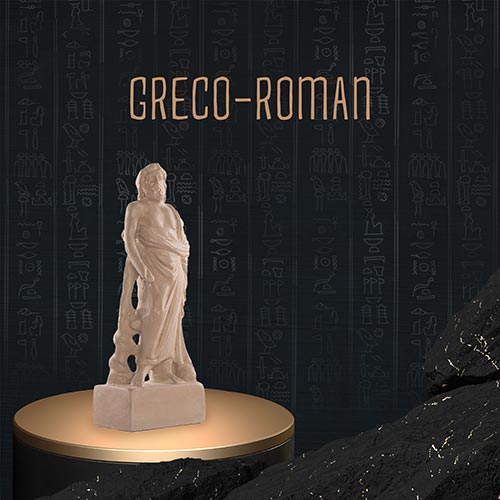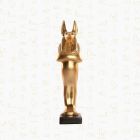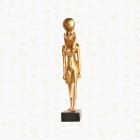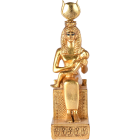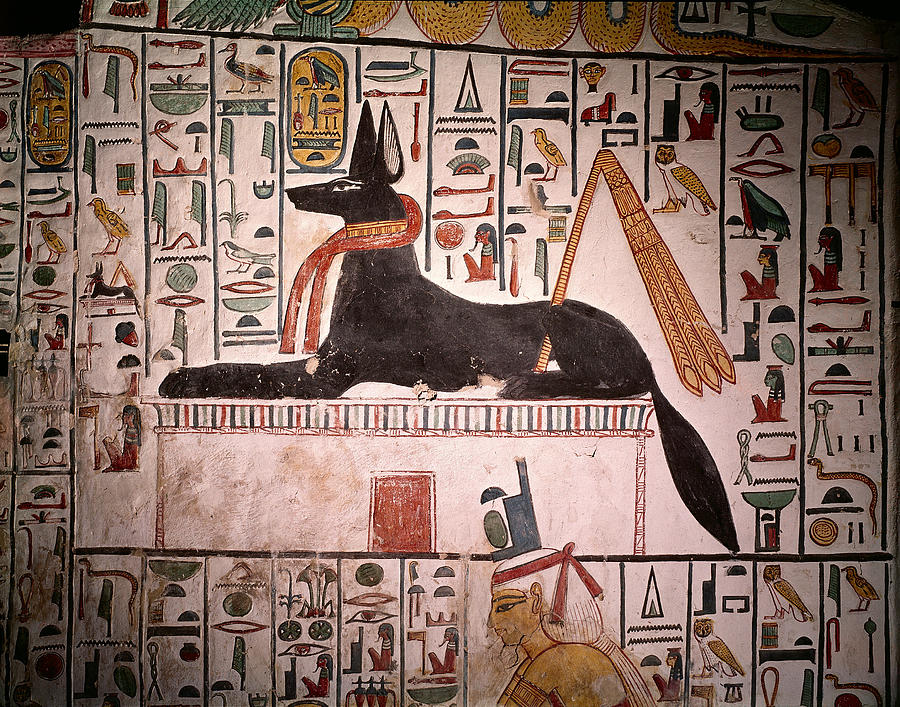
In the mystical realm of ancient Egypt, where pharaohs reigned and pyramids pierced the sky, a powerful deity named Anubis held a pivotal role. More than just a god, Anubis embodied the very essence of the afterlife, guiding souls on their journey into the next world. Today, we delve into the fascinating mythology surrounding Anubis, the Egyptian god of the dead , offering a glimpse into his significance and the enduring legacy he represents – a legacy you can bring to life through our exquisite collection of Egyptian artifact replicas here at Konouz Egypt.
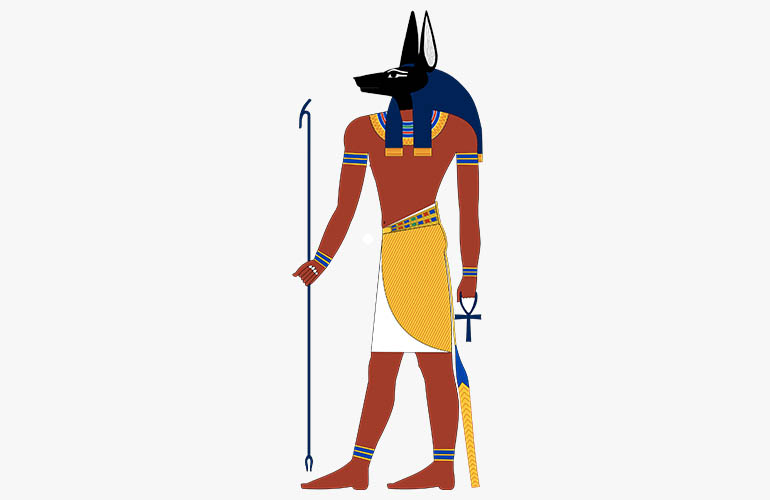
Anubis mythology
In the land of pharaohs and pyramids, where the sands whisper of ancient secrets, Anubis reigns supreme as the protector of the dead. This jackal-headed god, a prominent figure in Egyptian mythology, holds immense significance in the realm of death, transitions, and the afterlife. But who exactly is this intriguing deity, and why is he so significant?
How did Anubis become the god of the dead?
In the Predynastic Period (before 3100 BCE), wild dogs and Jackals were commonly seen lurking around cemeteries, and the Egyptians, with their deep respect for the dead, believed Anubis protected the deceased and their tombs. Egyptians might have seen these animals as protectors of the dead. This association with the jackal could have laid the foundation for Anubis's role. Anubis, often depicted as a man with the head of a jackal and was a revered figure in ancient Egyptian mythology
Anubis: Guardian and Guide of the Underworld
Anubis's primary role lies in safeguarding the deceased. He was believed to watch over cemeteries, preventing grave robbers and evil spirits from disturbing the eternal rest of the dead.
Also, Egyptians believed in a rich and complex afterlife. Anubis, with his keen senses and watchful gaze, was seen as the protector and guide of souls on their journey into the next world. Imagine him as a faithful companion, leading spirits through the perilous passage to the afterlife.

Anubis' Role in the Weighing of the Heart: (Anubis heart)
One of Anubis' most significant duties was overseeing the Weighing of the Heart ceremony. During this critical ritual, the hearts of the deceased were weighed against the feather of Maat (representing truth and justice). If the heart was lighter than the feather, the soul was deemed worthy and granted passage into the afterlife. Anubis, ensured fairness in this sacred judgment.
Anubis: Beyond the Underworld:
Anubis' role wasn't limited to the afterlife. He was also associated with mummification the elaborate process Egyptians used to preserve bodies for their journey into the next life. Anubis was believed to breathe new life into the mummies, aiding their transition.
Why Anubis Tattoos Remain Popular
The jackal-headed god of the underworld, Anubis, has transcended time to become a prominent figure in tattoo culture. But what exactly draws people to these striking designs? Let's delve into the reasons behind the enduring popularity of Anubis tattoos.
Symbolic Strength: Anubis isn't just a cool-looking deity; he embodies powerful concepts. From the mysteries of death and the afterlife to transitions, protection, and balance, Anubis offers a wealth of symbolism. People can choose this tattoo to contemplate these themes, find solace in the face of mortality, or embrace new beginnings.
Visually Striking: There's no denying the captivating presence of Anubis in tattoo form. The jackal head, often depicted with a regal posture, creates a design that's both mysterious and powerful. This visual appeal makes it a standout choice for those who want a tattoo that makes a statement.
A Touch of History: Ancient Egypt holds an undeniable allure, and Anubis is a key figure in its rich mythology. People usually choose an Anubis tattoo as a way to connect with this captivating civilization.
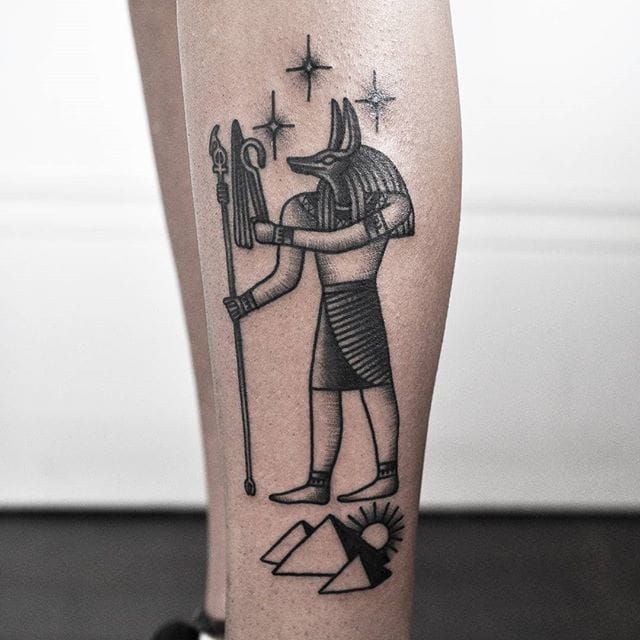
Explore the Afterlife with Us:
As you browse our collection, let the captivating replicas transport you back to a time when the veil between the living and the dead was thin, and Anubis, the jackal god, stood guard. These replicas are more than just decorative objects; they are tangible connections to a rich and fascinating mythology.
So, explore our collection today and discover your own piece of the Egyptian afterlife!
